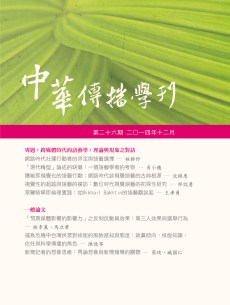 閱覽人數: 2449
閱覽人數: 2449
December
2014
No. 26
跨媒體時代的語藝學: 理論與現象之對話
Rhetoric in the Transmedia Age: A Dialogue between Theory and Phenomenon頁數:177 - 221
作者(中)
林素真、馬立君
作者(英)
Sue-Jen Lin & Li-Chun Ma
關鍵詞(中)
反動員效果、政治冷漠感、政治效能感、第三人效果、憤世嫉俗
關鍵詞(英)
demobilization effect, political apathy, political efficacy, thirdperson effect, cynicism
中文摘要
本研究以2011 年邱毅、陳致中的「世紀辯論會」為例,探討反動員及第三人效果對選民的影響。以多層集群方式募集的701 位年輕選民,在隨機分派方式下,分別觀看「世紀辯論會」或控制影片。
分析結果顯示,「世紀辯論會」會導致選民對政治不信任、對政治漠不關心及政治效能感的低落,進而降低其投票意願,並使其評估「世紀辯論會」對其他選民的影響大於對自己的影響,此反動員及第三人效果同時會影響選民規範媒體的意願及其選舉行為。
分析結果顯示,「世紀辯論會」會導致選民對政治不信任、對政治漠不關心及政治效能感的低落,進而降低其投票意願,並使其評估「世紀辯論會」對其他選民的影響大於對自己的影響,此反動員及第三人效果同時會影響選民規範媒體的意願及其選舉行為。
英文摘要
This study investigated the demobilizing and third-person effects of the 2011 Debate of the Century between Chou and Chen on the intention of
young voters to censor media and their willingness to vote. Participants (n = 701) were randomly assigned to either the experimental group to watch the Debate of the Century or the control group to watch a control film. The
videos were equal in length.
Results of statistical analysis indicate that the Debate of the Century tended to induce voter distrust, political apathy, and low political efficacy, thereby reducing voters’ willingness to vote. Additionally, the participants
perceived that the impact of the Debate of the Century was greater on other voters than on themselves. The demobilizing and third-person effects not only influence the intention of voters to censor media but also their voting
behavior.
young voters to censor media and their willingness to vote. Participants (n = 701) were randomly assigned to either the experimental group to watch the Debate of the Century or the control group to watch a control film. The
videos were equal in length.
Results of statistical analysis indicate that the Debate of the Century tended to induce voter distrust, political apathy, and low political efficacy, thereby reducing voters’ willingness to vote. Additionally, the participants
perceived that the impact of the Debate of the Century was greater on other voters than on themselves. The demobilizing and third-person effects not only influence the intention of voters to censor media but also their voting
behavior.